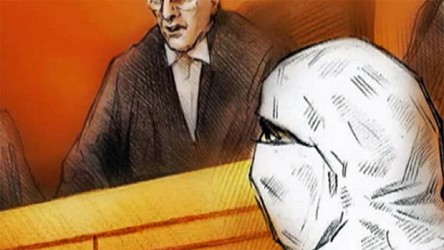In politics nowadays, you can either be in the Message Box or the Penalty Box.
by Alice Funke
Christy the Campaigner's 20-point comeback, against the most technically proficient campaign the BC NDP has ever run, contains a number of lessons for federal political watchers to consider carefully.
Here are several to ponder, and no doubt more will surface as the BC provincial election win of Premier Christy Clark and her free enterprise coalition party, the BC Liberals, starts to sink in.
Everyone remembers the 2012 Obama campaign as positive, but seems to forget that a brutal series of negative ads against Mitt Romney six months earlier paved the way for their positive endgame.
- "No more Mr. Nice Guy" – The "positive campaign" as a strategy in the face of relentless attacks does not work, especially when the ballot question winds up being leadership. Everyone remembers the 2012 Obama campaign as positive, but seems to forget that a brutal series of negative ads against Mitt Romney six months earlier paved the way for their positive end-game. Voters (especially women) might tell focus groups ahead of time that they don't like negative attacks and prefer positive campaign ads, but that feedback is given in isolation from exposure to the other campaign. Once you get into an election period, with the two main campaigns running in parallel, if one campaign is constantly attacking you, turning the other cheek looks wimpy.
- "Comms trumps Policy" – If you're explaining, you're losing, and policy requires a lot of explanation. As a sub-lesson, a policy pivot – such as on the Kinder Morgan pipeline – probably needs the groundwork laid well before an election in order to make sense to the voters whose decision would be affected by it. Facts and subtleties get lost in a campaign, while a lie that touches a key value, if repeated relentlessly, cuts through. In politics nowadays, you can either be in the Message Box or the Penalty Box.
- "Anger is better than love, and fear works better than hope" – In the chaotic and frenzied info-saturated world within which electoral campaigns now have to function, strong negative emotions repeated endlessly cut through the clutter if they're not answered better with strong communications and marketing. The BC Liberal campaign was able to change the ballot question for enough people from "time for a change" to "fear of weak leadership," while the hopeful kids who wanted "change for the better" did not seem to feel it necessary to vote.
- "Stop looking at the polls" – Good luck with that, but the panels from which online polls are drawn clearly are not representative of the voting population as a whole, in either demographics or psychographics, and two of the leaning online pollsters in the industry – both of whom were able to approximate the 2009 election results pretty closely — were off the mark by 6 to 8 points. This is becoming a real problem, because the public domain polls drive the news coverage, which then often wrongly governs the mood on each campaign, and may even influence tactical voting decisions right down to the final hours. I don't know where or how Christy Clark found it in her to put on a game face and smile every single day, when all around predicted doom. But by the same token, did confident NDP voters go out and enjoy the sunshine rather than vote, believing their win was in the bag? We believe that awareness of the Wild Rose surge in Alberta caused people to switch during the final weekend there, but did a belief in the invincibility of the BC NDP's final E-minus-1 poll numbers cause voters to skip a trip to the polls? Or is it the case that online polls find younger, left-wing voters, while traditional telephone polls find older, more conservative ones?
- "Stop trusting the polls" – While good campaigns don't base their strategy on following the polls, how can they help but use polling data as a measure of how they're doing? If you're constantly getting the wrong feedback on what you're doing, how can you improve it?
- "The lessons are different for right and left" – Conservative parties received confirmation last night that they are right to stay in their own bubble and mistrust the "analysis" coming from the policy wonks in the media (or, evidently, me). They learned that they can speak to their core supporters, who have very different demographics and values, and ignore everyone else. Ranking the BC ridings by turnout shows the older, wealthier ridings near 60 percent turnout, and the less-well-off, younger ridings down in the low 40s. The turnout bonus for conservative parties is apparently accelerating, as well, going from a 3- or 4-point gap in the 2011 federal race to a 10-point gap last night in BC. Ten ridings were decided by less than 3.7 percent of the vote, and while under BC elections law there are six kinds of absentee ballots that won't be counted until May 27 which could conceivably change the outcome in several of those seats, turnout (not close calls) was the decisive factor in explaining last night's historic upset. If the traditional demographic bases of support for progressive parties do not vote in sufficient numbers, they will become increasingly powerless to effect other changes in their society.
As for the BC Liberals, they ran the campaign they thought they needed to, given the apparently dire circumstances, and stuck to their guns to the end. They are certainly entitled to more than one victory lap and "I told you so" for that.
The BC NDP ran the campaign its leader insisted he wanted to run, and while it will be tempting to compare it to the 2011 Layton campaign, given a few of the key BC campaign personnel known to Ottawa insiders, the BC campaign lacked a clear hit on Liberal attendance records, or negative ads about flip-flops and Tim Hortons healthcare. It really did not start to prosecute the incumbent government's record until E-minus-10, which wound up being far too late. Indeed Dix wound up under-performing the 2009 vote-share achieved by former leader Carole James, whose ouster by a baker's dozen of caucus members paved the way for his ascendancy to the leadership.
It seems a cruel twist of fate that Senator Doug Finley could not live long enough to see Tuesday's come-from-behind shocker, though I'm sure he would have enjoyed it thoroughly. I wonder what other lessons he would have drawn. What lessons do you draw?



